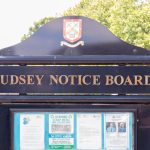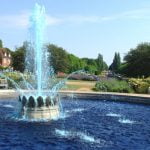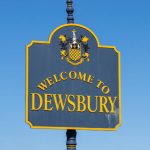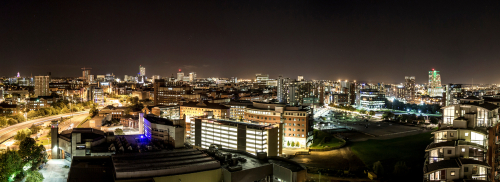
With Leeds University being one of the places at the forefront of people’s knowledge about the place, many aren’t actually sure what goes on in the city besides education and football. This city of West Yorkshire has one of the most diverse economies in the UK’s working sectors, with more jobs being produced each year than anywhere else.
But’s it’s not all hard work and no play in the city of Leeds. There’s plenty to do in this artistic and wonderful city that will keep you busy for days. Here, we’ll list a number of things to keep you entertained in this cultural metropolis; so, hold on to your hats, and let’s get started with our five-minute guide to the city of Leeds!
History of Leeds!
Leeds began its life as a Saxon village. It had very few people actually living within its borders, and by the late 11th century, it only had a population of approximately 200 individuals. In 1207, Maurice De Gant founded a new town around this village, using trade and commerce to increase the flow of people there. At that time, trade and commerce were increasing in England, and many towns were founded to meet the demand.
The first new street was called Brigg Gata, where many new houses were built by craftsmen who then paid the Lord of the Manor for rent. Medieval Leeds saw a rise of butchers, bakers, carpenters, and blacksmiths within the town’s limits, but the main industry was in wool. In Leeds, wool was woven then fulled and dyed. It was profitable as dyed wool was in big demand.
There was also a weekly market in the town, as well as two annual fairs. The people of Yorkshire travelled far to reach Leeds and sell their wares there. However, many of the inhabitants of the town made their daily living from farming. Even in a town that only had 1000 people living in it during this point in history, farming was needed for a number of things. Leeds was an unimportant town in the Middle Ages, but it still managed to thrive in its own way.
Enter the 16th century, where Leeds grew much larger. There was a rapid growth in the wool industry, and business in Leeds boomed for years to come. By the middle of the 17th century, there were around 6,000 people living there; making it one of the largest towns in Yorkshire during those years. Though there was also a civil war that century and several outbreaks of the plague, Leeds still managed to survive.
Life in Leeds improved drastically by the 19th century, with gas-lit streets and a new railway. Leeds was connected to Selby, York, and Derby, and their team, Leeds United, was founded in 1864. The wool industry was still doing excellently, even after the market for textiles dwindled because tailoring became important in its place.
The 21st century shows Leeds at its most prosperous. A population of 780,000 people live in the city, with new changes to the area making Leeds better than ever before. Tourism is popular, and a city museum opened its doors over a decade ago.
What to do in Leeds!
There’s plenty of activities to stave off your boredom when you’re walking around the pathways of Leeds. Take, for example, the Royal Armouries, one of the best museums available to visit in the UK. It’s completely free to look around, and inside, you can see over 8000 pieces from the National Collection of Arms and Armour. Over the years, this collection has inspired many of the props used in films on the big screen.
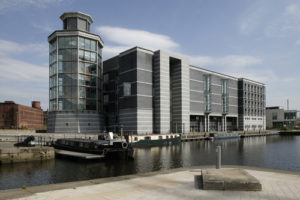
The impressive Royal Armouries Museum at Clarence Dock
If museums aren’t your thing, there are also several skate parks. One such is the Woodhouse Moor Skate Park, a place that is considered to be a right of passage for skaters in Leeds city. It’s split into three sections, very spaced out, and contains flat banks as well as quarter pipes; and more!
We’re positive you can find a way to waste the hours away in Leeds, even without putting your hand in your pocket for your wallet every hour.
Shopping
Leeds has a premier shopping centre, right at the heart of the city. Trinity Leeds covers three floors, and it’s open seven days a week. There are more than 120 shops, bars, and restaurants in Trinity Leeds, and the centre doesn’t close until 8 pm from Monday to Saturday. Perfect for late-night shopping, especially in the winter months. Trinity Leeds is also a fully operating tax-free shopping centre!
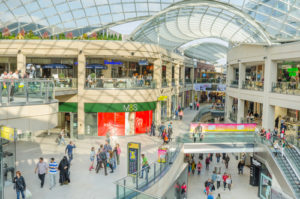
Trinity Shopping Centre is located at the heart of the city
But Trinity isn’t the only place to go. Leeds is a mecca for all of your high street shopping needs. The city centre is pretty compact and easy to get around on foot without the need for public transport. There are over 1000 shops in the centre; from unique boutiques to chain restaurants.
But your shopping trip in Leeds wouldn’t be complete if you didn’t take some time to visit Kirkgate Market. Part of the market runs out of a Grade I listed building that dates back to 1875. It’s one of the largest covered markets in Europe and it’s open six days a week. There are over 600 stalls, where the traders offer freshness, tonnes of variety, and great value for money.
Food and Drink
For visitors that are spending a few hours in Trinity Leeds, one of the best-reviewed restaurants is Crafthouse; situated on Level 5 of the complex. This British restaurant specialised in chargrilled dishes and fine wines served in a modern restaurant with a sleek look. Alternatively, The Botanist Leeds is a rustic gastropub found on the Boar Lane side of Trinity Leeds. The two restaurants are very different from each other, but both serve marvellous dishes.
Outside of Trinity Leeds, there are plenty more places for you to go for your lunch or dinner. Another gastropub is The Cross Keys on Water Lane. This smart-looking eatery has cosy alcoves and an open fire. It serves classic British dishes and local ales and is perfectly located to overlook the River Aire.
For a café with great ratings, try Taste on Butcher Street. They have great prices, as well as outdoor and indoor seating, and they offer takeout, too. There’s very little difference between the takeout and eat-in prices, which is great for all types of customers!
Music and Entertainment
Funnily enough, the restaurants and bars of Leeds host some amazing entertainment to complement their unique and homely foods. Take the Outlaws Yacht Club, for example – sandwich boards alongside live music, surrounded by art.
Pure music can be found in venues such as First Direct Arena, where the biggest stars in the world have taken to the stage; or O2 Academy Leeds, one of the busiest venues in the city! Check out The Wardrobe for an experience like no other – it’s full of new bands, but also doubles as a bar with café elements.
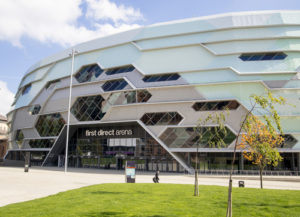
The First Direct Arena can attract some of the biggest names in music
And for the students among you, Leeds University Union has been hosting the music scene for well over 50 years. The three venues around the institute have shown many popular musicians through their doors, including the Arctic Monkeys.
Travelling in Leeds!
Leeds is a major city, with trains and buses running every day, all day. The bus system is simple to use and run by First Group, who offer £4 Day tickets for those travelling around the city in the Leeds Metropolitan boundary. There is also a bus service that runs every six to seven minutes on Monday to Saturday, which goes from the train station to both main University campus areas, then to the shopping area, and finally to the bus station and market area. This service is great for visitors because it’s a lot cheaper than First Bus tickets for single journeys.
The train station at Leeds is popular for travelling a long distance. There are 17 platforms in total, making it the biggest station outside of London. Popular journeys from this station include trains to York, Glasgow Central, Manchester, London, Sheffield, and more.
There are also buses that can take you to Leeds Bradford Airport, which goes from Leeds train station. A very convenient bus service, indeed!
Places to stay in Leeds!
As for places to stay, Dakota Leeds is a firm favourite in the city. Chic rooms, minibars, a bar and grill; what more could you ask for? Prices average around £100 a night for a room, depending on when you book, of course.
For a more inexpensive stay, Leeds city centre has its own Hotel Novotel, a well-known chain of hotels around England. They’re very similar to other budget hotels (such as Premier Inn, which also exists in Leeds), costing around £65 a night for a room, and offering free Wi-Fi. But that’s not all, Hotel Novotel Leeds Centre also has a sauna, a fitness room, a bar, and a regional eatery.
Of course, there are also plenty of Air BnBs in and round Leeds. From party houses to tree huts, and the typical but stylish city lofts, you’re sure to find somewhere to stay in this artistic city. For something a little different, try searching for woodland cabins or looking at the more quirky accommodations available.
All images credited to Shutterstock.com
